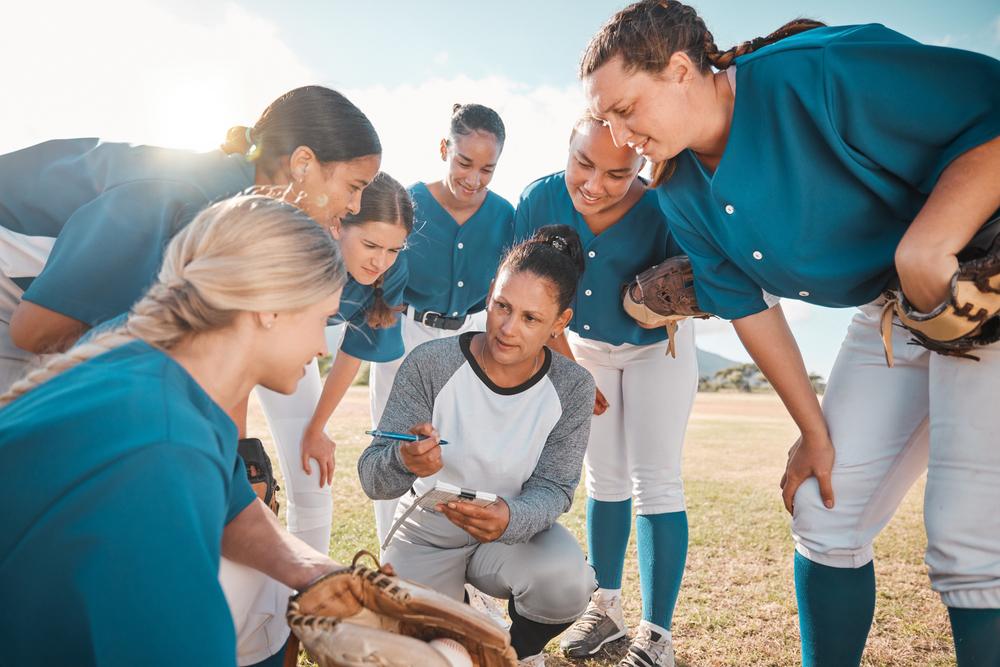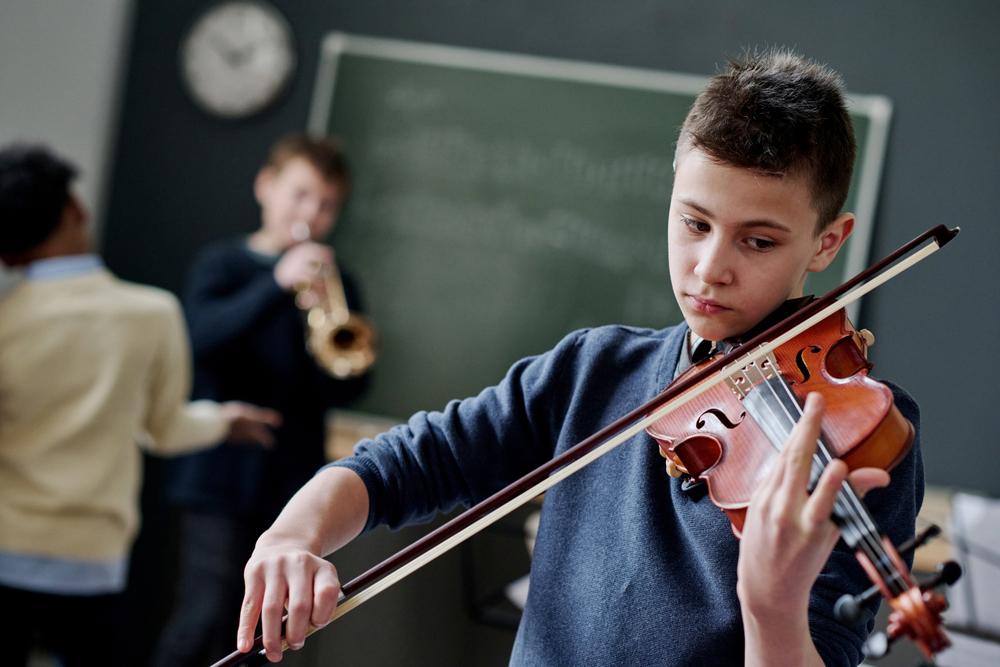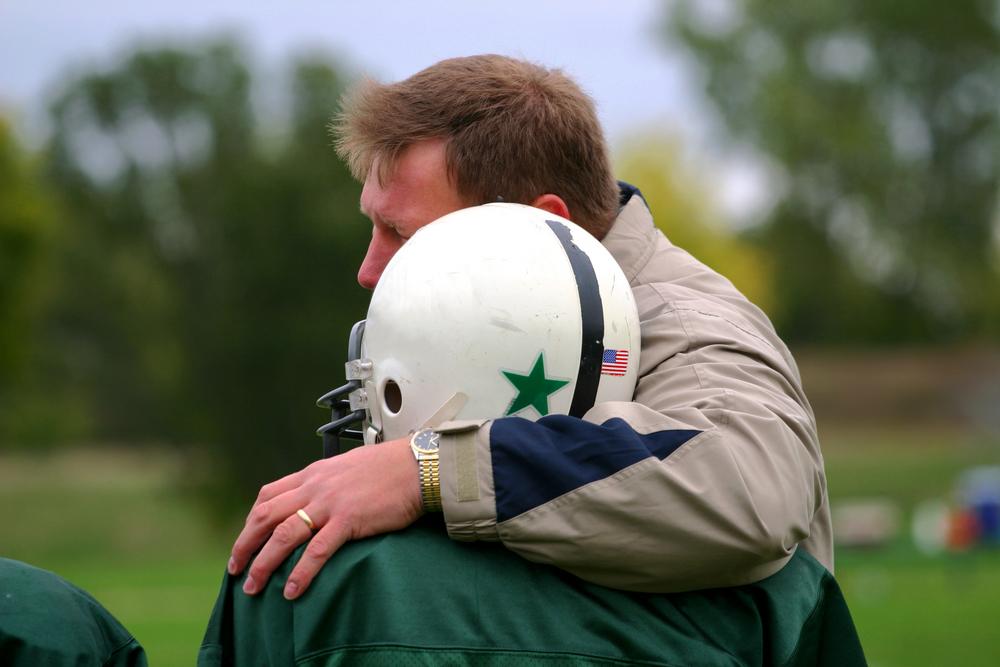An interview with TrueSport Cohort for Change Coach Powell Paguibitan, Charlotte Latin School
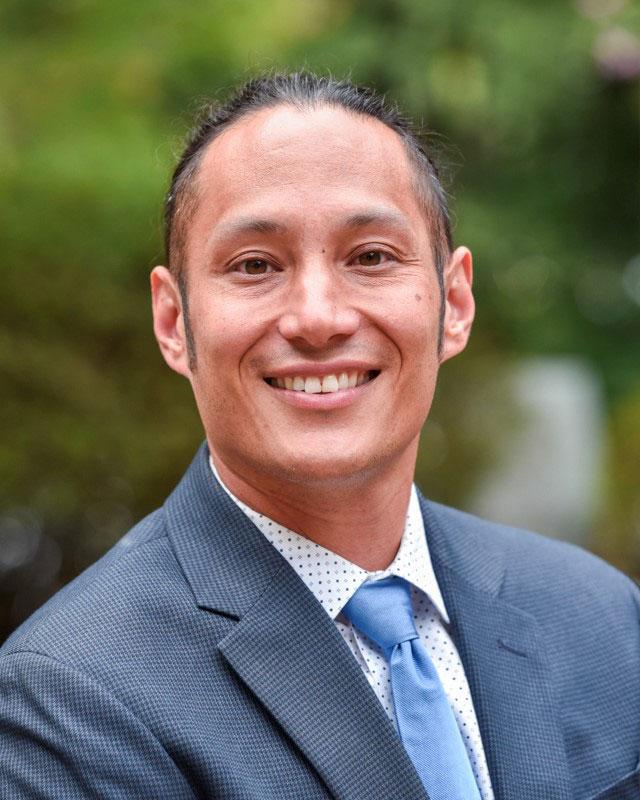 Can you please introduce yourself and what your current role in youth sport is?
Can you please introduce yourself and what your current role in youth sport is?
My name is Powell Paguibitan. I am the mental skills coach at the Charlotte Latin School in Charlotte, North Carolina. I currently serve as an assistant coach to the boys and girls varsity soccer teams, as well as the girls volleyball and cross-country teams. I work to incorporate mental skills training into sports.
My background is coaching soccer – something I’ve been doing for 13 years. Previously I was the Director of Sports Psychology at a local soccer club and then head coach at the same club. There I coached everything from ages eight to middle school and varsity level. When I came to Charlotte Latin School (CLS), the new head soccer coach was someone I had worked with previously and knew a lot about the work I had done as a sport psychologist. He asked if I could help the CLS soccer team and I was thrilled to inject mental skills and wellness into the sport. I started with the boys’ varsity team in the Fall of 2022, then followed with the girls in the Spring of 2023.
There is something exciting that recently happened with one of the teams you work with at Charlotte Latin School. Can you tell us about what that was?
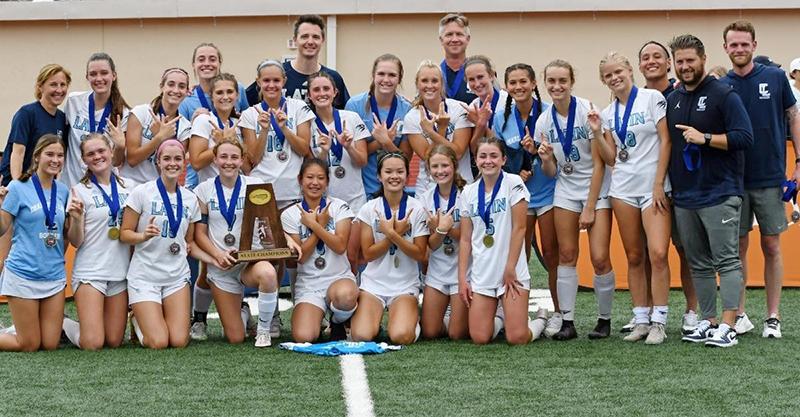
Most recently, the girls’ soccer team won a state championship, which was such a cool experience to be a part of – getting to see those girls finally lift the trophy! It wasn’t without its challenges, though.
The team ended up playing their rival who in the last three years they had lost to in the state championship. Anytime the team found itself playing against their rival team at state championships, there was a big mental block in performance that happened. The team knew that they were good enough to be on the field, but I think it started to mess with the psyche of some of our girls making them wonder how they were going to beat this team.
Fast forward to this year’s state championships, and the team ended up seeing their rival again, only this time, it was one of those moments where they knew something had to be different. We had to make the changes and, you know, credit to the new coach who came in and did a great job. I was grateful to have played a small role in the final outcome, and it was cool to get to see those girls finally get over the hump.
Was there a moment that stood out where you could see a shift in mentality had happened with this team?
I remember asking a couple of girls separately after the win what was going on and what they were thinking. They said they had a few seconds of panic initially, and then they realized we had talked about this moment before. They felt like because we had already talked about this moment, learned some of the skills to reset, and used those skills during training, that it was just something that they were prepared to do now.
How would you describe your process of developing more psychologically resilient young athletes?
I was very fortunate to be a part of a program where I was given a classroom session combined with film for the team to look at the tactical stuff, as well as to do mental skills training. I was able to include the resources TrueSport provided to me as a Cohort for Change Coach in these sessions. I started with just two minutes a day of practicing and doing emotional check ins. I would ask questions like, “How are you feeling? What’s going on in your life?”
We were looking at how to build emotional resilience and grit in the athletes. We also looked at what the coaching staff really wanted. When we asked the coaches what they were looking for and followed that by asking the athletes what they thought coaches were looking for, the athletes all wrote down technical skills, shooting, and power. The coaches all said coachability, good teamwork, and hustle.
Formalizing these interpretations of what was desired from the team and coaches built the ability to communicate better and accept feedback in both directions.
Once you start to build those connections and be authentic and vulnerable as a team, I think that’s how you build true relationships. When I really know what’s going on with someone and can connect with them, not just on a surface level, but more deeply and emotionally, I think that builds true bonds.
Going through the process of being able to formalize the combination of once a week going through training sessions and incorporating some of the TrueSport quick hitters or mental wellness training on the field is what I would recommend to others.
Why do you think there are still coaches and programs that exist which might be hesitant to start implementing mental skills training into their programs?
I’m very fortunate that I work at a pre-K through 12 school with many resources and various sports teams. I know that as I’ve tried to gather other coaches to get on board with helping develop mental skills and mental wellness, the feedback that I’ve gotten a lot is that the coaches feel as if, “Well, it’s always been done this way.”
They themselves were coached in a certain way and that way didn’t include talking about emotions. They just sucked it up and did it. And I think that mentality still persists even as we move into the 21st century. That it’s just a bunch of grit your teeth and make it happen, as opposed to dealing with those emotional struggles.
What makes sport a unique environment for young people to put some of the strategies you’re teaching into place versus other areas of their life?
One of the reasons I love sports is because sport is life. I think sport is such a unique opportunity to explicitly talk about some of those mental and emotional regulation skills because there is so much that goes on. There is the performance piece where we want to perform optimally during certain times, but can we set aside what’s going on in our lives when that really matters?
And sometimes instead of trying to ignore it, I think it’s a matter of embracing it and using those emotions as positive fuel instead of trying to shove them down, block them, and hope that they never come out again.
Why do you think this next generation is more open to having conversations about mental wellness and mental health?
You know, what’s interesting is when we talk about mental health and mental wellness, some of the first people to step up into that space and say, “Hey, I’m struggling with this” are athletes like Michael Phelps who came out saying it’s okay to not be okay. And as one of the greatest Olympians of all time, he had to come forward and talk about some of his own struggles.
We have the G.O.A.T. gymnast, Simon Biles, who came out and said, “I can’t participate anymore, and I have to take a step back.” It’s really helpful to see athletes in that space own what’s going on and I think that certainly pushes the conversation forward. But I also think as much as we can talk about the downfall of social media, there’s also some really cool things going on where people are more willing to open up.
I think this new generation is more open because so much of their life is on social media. So, if they’re following the right people, then they’re learning techniques to deal with it. Not necessarily just venting, but learning how people who have been in that struggle and overcome that struggle are using their platform in positive ways.
Knowing there need to be safeguards and boundaries in place for any interactions between coaches and athletes on social media, what ways can coaches utilize social media to help establish a mentally healthy team culture?
It’s one of those things where we want to make sure the kids are following the right people. With the girl’s team, we talk a lot about body image, the idea of Photoshop, and how what we see on social media is not always authentic.
The same goes with competition. They will post the moment of the state championship, but not the hard work that goes into it. So, I think it’s easy for us to get infatuated with the end results we see, but not recognizing everything that went into it. We should use that reality as our perspective of what’s really going on in social media.
How much onus is on the athlete to establish a healthy team culture versus the coach?
I always feel the best teams are the ones where standards are upheld by the captains and the teammates. As a coach, I know we’re going to have a successful season when some of the things we’ve talked about are coming out of the mouths of my players and it’s not just me talking about those things. I think the onus is really on everyone.
You mentioned team captain peer to peer influence, and we know coaches have a huge influence. You yourself have proven that you have very powerful influence by providing the education and the skills that you offer. Who would you recommend a coach, athlete, or athlete family member connect with in their community to help build out a robust and supportive cultural foundation of mental wellness?
I think this is a difficult question because there are so many resources and then simultaneously not enough. It is kind of a paradox where I could look online for countless things like a sports psychologist and there will be a plethora of people who pop up. But there’s this phrase in clinical psychology where we ask, “When is the exact moment where a client or patient gets better?” and it’s always the first time they pick up the phone because that’s the moment where they’re finally willing to reach out.
And so, I think with everything available with the Internet and all the resources and people available to athletes, I think what really matters is not necessarily who or what, but the willingness to reach out.
One of my big goals for the team is to find true belonging. I think when you as a coach have those influential relationships, sometimes the best thing you can do is to point someone in the direction of help. I may not be able to handle it, I’m really glad they shared with me, and we’re going to find someone who they can talk to. I’m not a certified therapist, so while I can listen and work on those listening skills, finding someone who is certified, licensed, and can help them out a little more than I could is more important.
For coaches who have had athletes approach them to share situations where they are struggling mentally, but the coach feels ill equipped to support them appropriately, how do you recommend they manage the relationship with their athlete if the athlete expresses feelings of being “handed off” or “not important enough”?
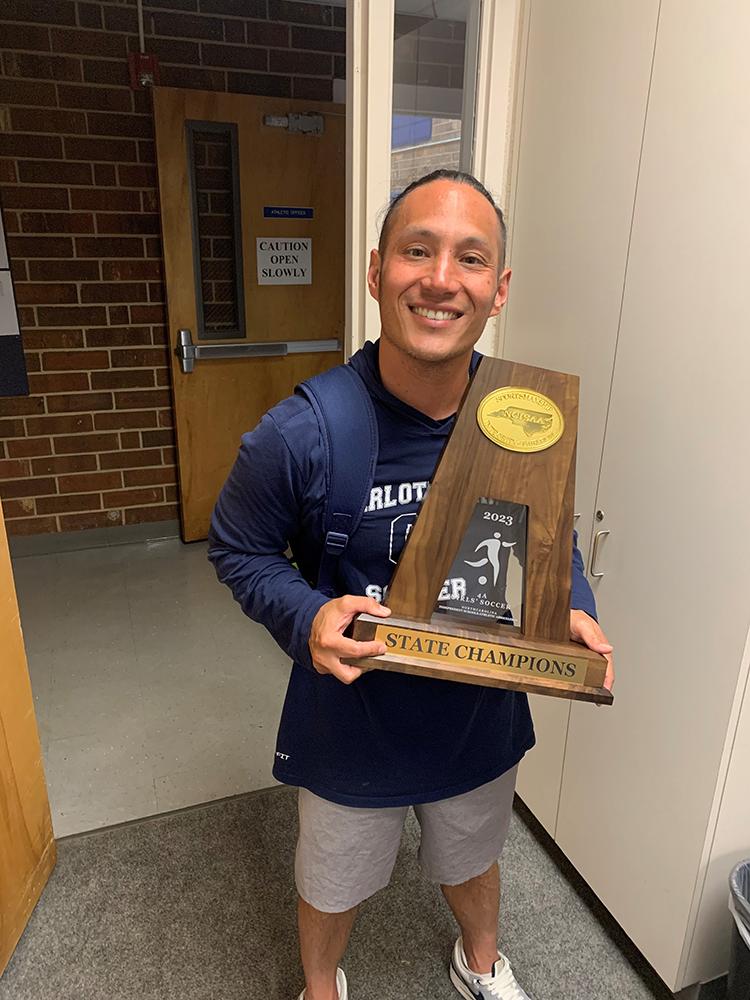 I find one of the questions I ask my athletes and my students a lot is, “What can I do to support you?” As simple as that is, it helps me to not come in with a prescribed preconception of how I should handle something, because I know for some people, they just need someone to listen to, whereas other times they might need something else. I might have two athletes who have the exact same problem, but they’re going to want two very different methods of support.
I find one of the questions I ask my athletes and my students a lot is, “What can I do to support you?” As simple as that is, it helps me to not come in with a prescribed preconception of how I should handle something, because I know for some people, they just need someone to listen to, whereas other times they might need something else. I might have two athletes who have the exact same problem, but they’re going to want two very different methods of support.
One of the lessons that I think was the most powerful all year long for the girls team was when I asked each coach to write something they found most valuable about each player. Not necessarily who they are as players or what they produce on the field, but who they are as people, teammates, and how they show up.
It made them feel valued, and more importantly, feel seen not for who we want them to be or what we want them to produce on the field, but who they are as people and that they are worthy just as they are. I think that was a powerful moment because it elevated those relationships and created the ability for athletes to come talk to us.
At the end of the day, yes, we want them to succeed as soccer players, but we also just want them to succeed as people. I think opening those doors and building those relationships is always the start of these things.
What advice would you give someone looking to start mental skills training on their team?
When you can share openly and authentically about some of the stuff you’ve gone through, the story is better than offering up pieces of data. Data matters and we should always use data to support our claims, but a story can really dig into the human experience of what’s true. Not just true for me, but for lots of other people that I don’t have to do everything, I just have to be honest about how I’m doing.
We’ve all felt anxiety at some point. It may not be classified as a true diagnosable mental disorder, but who hasn’t felt something like test anxiety where you’re a little sweaty? We’ve all experienced that. So, I think when we can humanize those emotions, we’ve opened the door to talk about those things and allow people to step into the space as they need to.
That is solid advice: be authentic, be open, and share the experiences of yourself and others. I think that’s fantastic and it’s not something that a coach would have to go get trained in sports psychology to do. It just opens the door. Looking to the future, what’s in the pipeline for you? What are you looking forward to in this space? What is Future Powell up to?
I’m really looking forward to moving into other areas that, honestly, I feel a little uncomfortable in. I don’t know anything about volleyball. I am the soccer coach through and through, and you know, when all else fails, I can still coach soccer. I’m moving into a new realm where I don’t know much about volleyball, but I’m really excited about it because I think there’s so much potential.
I think one of my weaknesses that happened with soccer was that I relied on just being a soccer coach. In soccer, if we weren’t talking about emotional regulation, that was okay. I could still talk sport-specific strategy and play it off. I can’t do that with volleyball. So, I’m really excited to step into a space that I’m a little insecure in.
I want to win championships, don’t get me wrong, but the main goal was never to win the championship with the soccer team. It was always to help people grow and reach their full potential in whatever capacity that is for them. I’m excited that I get to step into that and challenge myself and be there in a different context.
